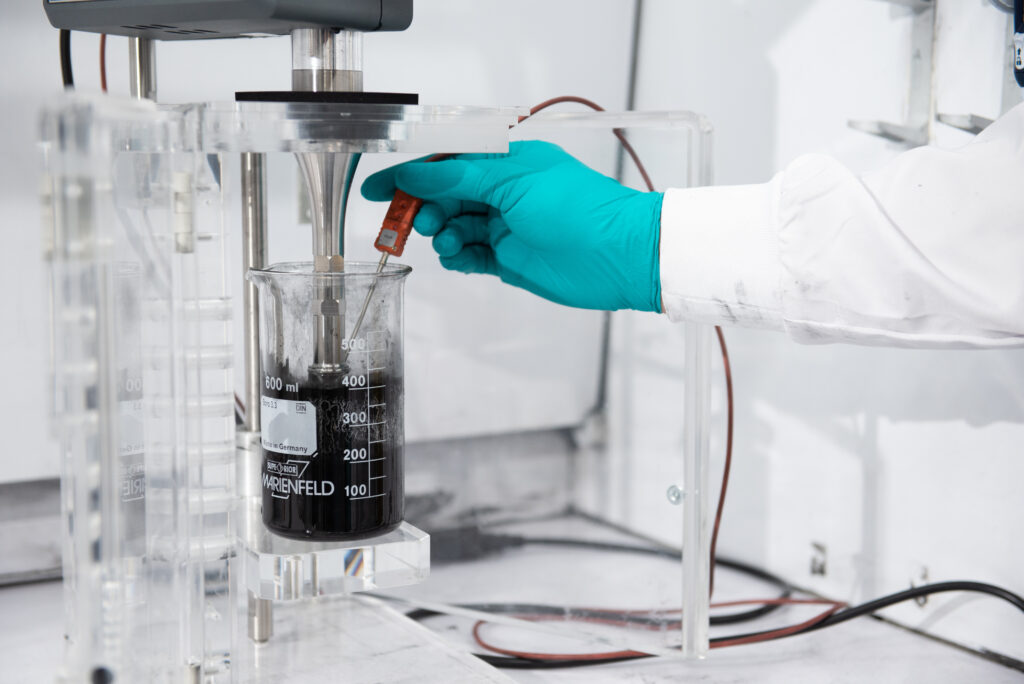A silicon-sulfur battery will leverage Australian and US supply chains to manufacture a battery that doesn’t rely heavily on nickel, cobalt, or even graphite.
It will be 25-50% lighter than current batteries, and cost up to 35% less on a materials basis, and it will be built to be much safer – meaning the risk of fires and thermal events is drastically reduced.
Gelion is pleased to announce that it has signed a Joint Development Agreement (JDA) with Ionblox Incorporated (Ionblox), the California based next-generation battery technology company transforming the future of mobility by land and air. The JDA aims to deliver safe, high-energy density, lower cost lithium silicon sulfur (LiSiS) cells for the global electric vehicle (EV), electrical vertical-takeoff-and-landing (eVTOL) and drone markets, before progressing to the stationary energy storage market.
The EV and eVTOL industries are seeking highly competitive next-generation battery technologies to underpin the transition to net-zero emissions, illustrated by the International Energy Agency estimating approximately 300 million EVs will be required by 2030, compared with 10 million EV’s in 2022. Battery powered eVOTLs, drones and stationary energy storage will additionally support the renewables revolution.
Gelion has accelerated to a leading position in lithium sulfur development by combining its R&D and IP with the broad IP and know-how it acquired from Johnson Matthey earlier in 2023, and is developing sulfur cathodes to integrate with a variety of anodes including silicon. Gelion has also acquired UK lithium-sulfur innovator OXLiD Ltd, which provided significant cathode improvements, novel IP, and industry renowned team members. Ionblox is a leading silicon oxide (SiOx) anode developer with multiple performance attributes – fast charging, high energy, high power, and long life at low cost. Ionblox’s investors include Lilium, Applied Ventures, Temasek and Catalus Capital.
Gelion and Ionblox will jointly aim to develop high performance, next-generation LiSiS cells, which have the potential to deliver¹ a number of advantages over traditional lithium-ion batteries:
- Up to double the gravimetric energy density ~400 Wh/Kg, enabling increased range between charges in EVs, therefore reducing “range anxiety”;
- Lighter weight batteries reducing the cost of manufacture for an EV for key components such as suspension, braking and tires;
- Radical improvement of battery safety, due to the intrinsic reduction in thermal events achieved by the silicon-sulfur chemistry, dramatically reducing risk of fires and/or explosion;
- Significant reduction of the LiSiS cell ‘bill of material costs’ by up to an estimated 35% thereby further reducing EV costs to better facilitate mass market take-up; and
- Reduction of the carbon lifecycle of LiSiS cells by more than 30% as compared to incumbent technologies, delivering a more sustainable mass production of LiSiS batteries for EVs.
We believe lithium-silicon-sulfur will be the battery of the future.
JDA Program
Each of Gelion and Ionblox will leverage their technology expertise, patent portfolio protection and leading R&D facilities located in Australia and the US respectively to develop the next-generation LiSiS cells.
Gelion will focus on the optimisation of the Sulfur cathode by incorporating the Acquisition and leveraging the IP Portfolio.
Ionblox will provide their best in class, proven, high-energy density pre-lithiated Silicon Oxide anode and optimize it appropriately for use with Gelion’s sulfur cathode.
Both organisations will jointly develop and optimise a proprietary electrolyte to enable the cycle life characteristics required for EV and electric aviation applications.
Upon completion of the LiSiS cell development, Gelion and Ionblox will finalise their commercial arrangement to take the cells to the global market.
Commenting on the Announcement, John Wood, Gelion CEO said: “The JDA with Ionblox continues to build momentum for Gelion’s sulfur technologies. Gelion is developing exceptional Sulfur cathode materials and quasi-solid state systems utilizing technology protected by our extensive IP portfolio. Our cathode platform approach now allows us to support multiple lithium anode technologies.
“With Ionblox we will be targeting development of next-generation Silicon Sulfur cells for global EV and Electric Aircraft markets together.”
Ionblox is an extraordinary battery technology company, and we are very excited to be working with Sujeet and his team who are achieving exceptional energy densities and Coulombic efficiencies with their pre-lithiated SiOx anode batteries. Combining these energy densities and efficiencies with those being achieved in our cathode materials by implementing a solid-to-solid sulfur, quasi-solid state approach, we anticipate achieving a breakthrough cell outcome together. Our goal is low cost, high safety, exceptional energy density, and high cycle life aiming toward electrifying all mobility, while using materials such as Sulfur with the abundance to meet the demand to support the planets clean energy needs.”
Quote from Sujeet, CEO of Ionblox:
“Ionblox believes in the potential of sulfur to produce higher performance, cheaper, safer batteries which provide even more value to existing partners, and unlock new applications.
We look forward to working with John and his team in Australia and the UK, and together working towards a global impact.”
The Aim Of The JDA
Jointly develop a lithium-silicon-sulfur cell that for eVTOL and EV applications.
High Energy Density Lithium Silicon-Sulfur Battery


